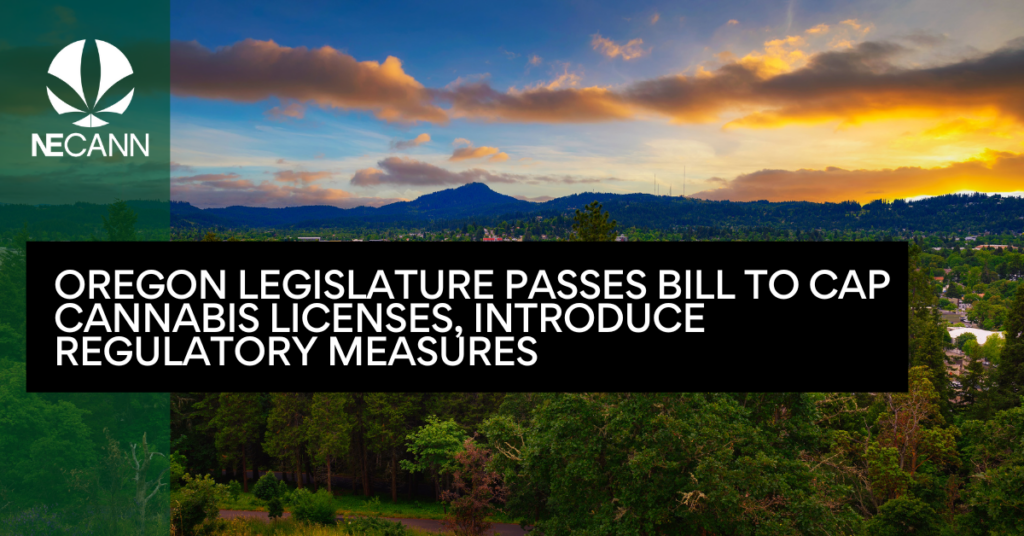In response to concerns over oversaturation in Oregon’s cannabis industry, the state legislature recently approved a bill aimed at curbing the proliferation of cannabis licenses. The legislation, passed last week, sets limits on the number of production, retail, processor, and wholesale licenses issued, with the goal of stabilizing the market and addressing economic challenges.
According to a staff member summary, the bill establishes a cap of one production and one retail license per 7,500 residents aged 21 and older. For processor and wholesale licenses, the cap is set at one per 12,500 residents in the same age group. These measures aim to strike a balance between supply and demand, preventing an oversupply of cannabis products in the market.
The move comes amid a decline in Oregon’s legal cannabis sales, which dropped to $955 million in the past year from a peak of $1.2 billion in 2021. Factors contributing to this decline include market saturation and a decrease in retail cannabis prices, which fell to $4 per gram in 2023.
In addition to license caps, the bill introduces regulatory measures aimed at enhancing oversight of the cannabis and industrial hemp industries. It allows for inter-agency cooperation in inspections and enforcement of industrial hemp operations, including provisions for National Guard assistance to support the Oregon Department of Agriculture (ODA) and law enforcement.
Furthermore, the legislation directs the Oregon Liquor and Cannabis Commission (OLCC), in collaboration with ODA, to develop a map of licensed cannabis and industrial hemp premises. It empowers law enforcement agencies to accompany the department in inspections of industrial hemp operations statewide.
The bill also mandates the establishment of a registration system for industrial hemp products containing cannabinoids intended for human or animal use. It imposes civil penalties of up to $10,000 for each violation of the registration requirements.
Moreover, the legislation tasks the OLCC with establishing uniform standards for minor decoy operations to investigate the sale of cannabis products to individuals under 21, aiming to enhance compliance with age restrictions.
If signed into law by Governor Tina Kotek (D), most provisions of the bill will take effect on January 1, 2025, while the registration system for industrial hemp products is slated to be implemented on January 1, 2026.
This legislative initiative underscores Oregon’s commitment to addressing challenges within its cannabis industry and ensuring responsible regulation for the benefit of both businesses and consumers. Stay updated on the latest developments in the cannabis business landscape by subscribing to daily news updates.
Stay updated with the latest business news by subscribing to NECANN.




